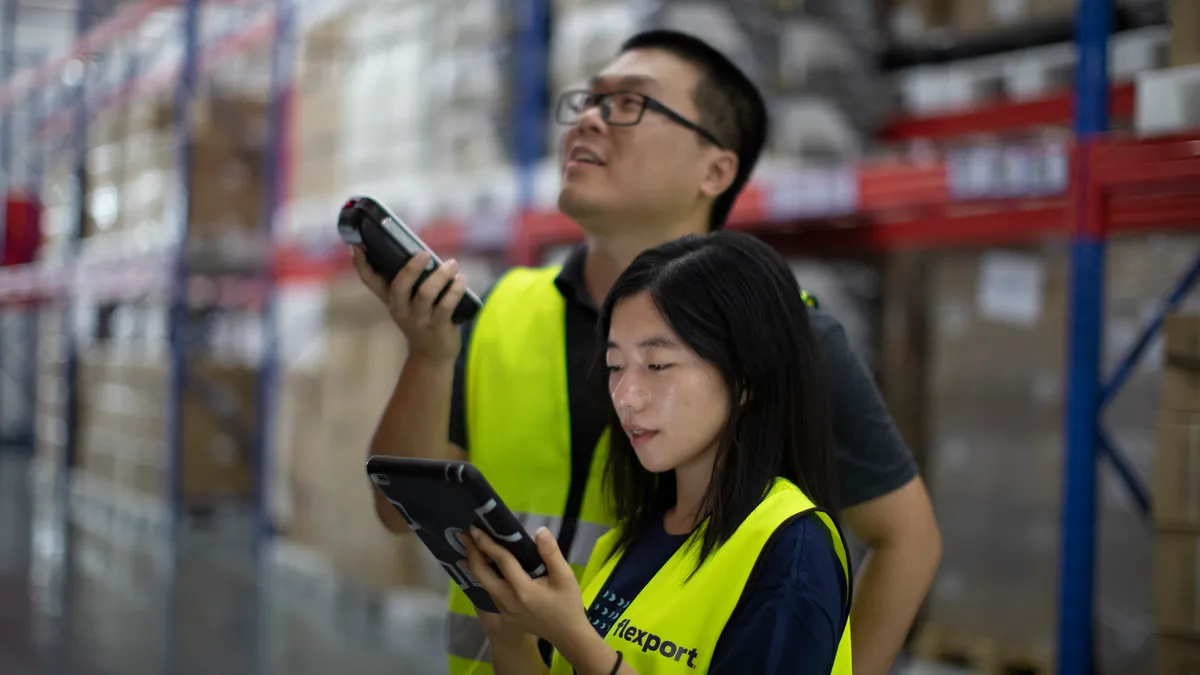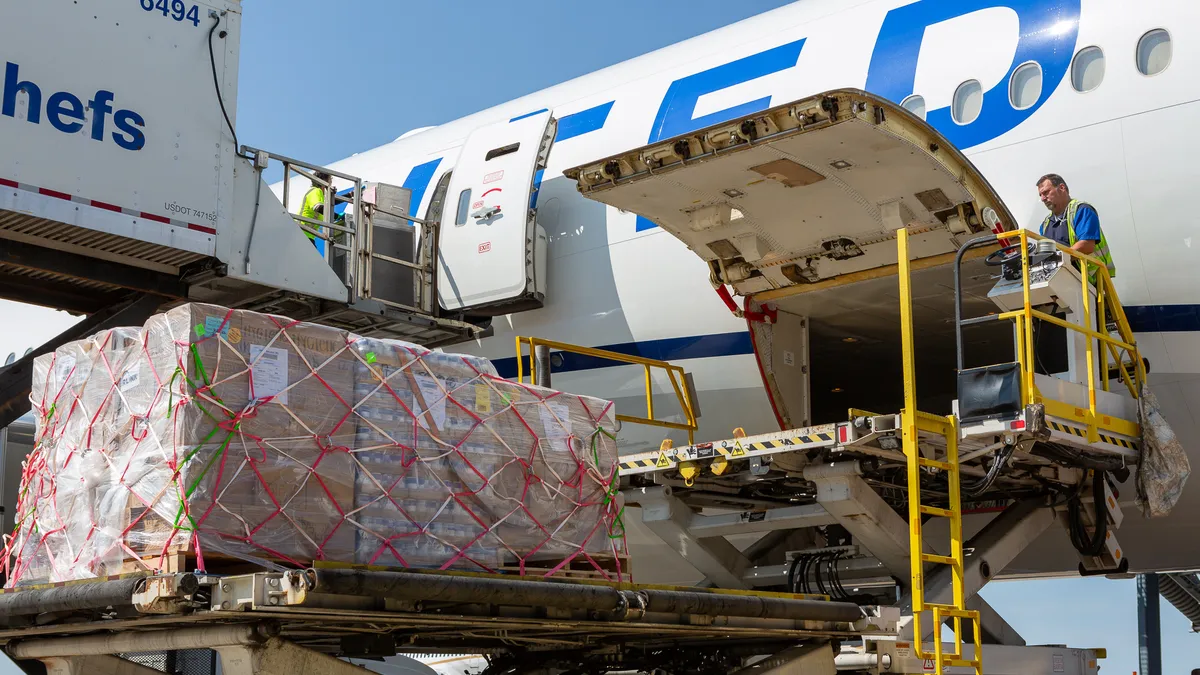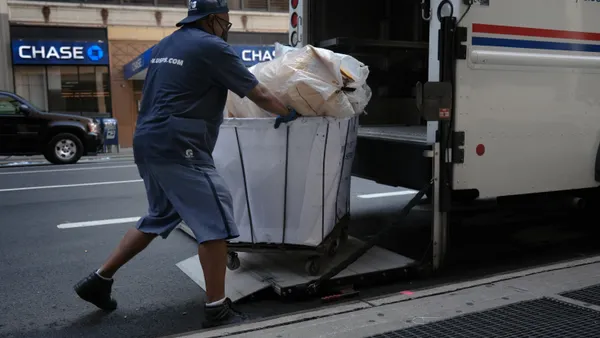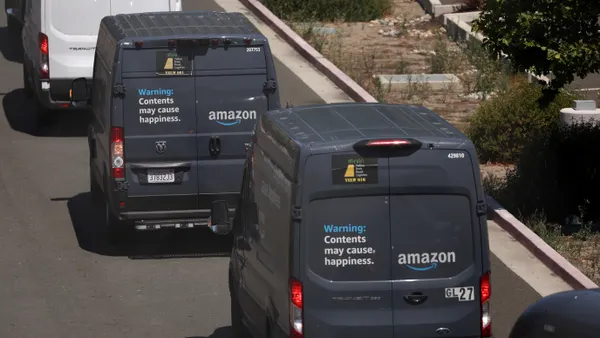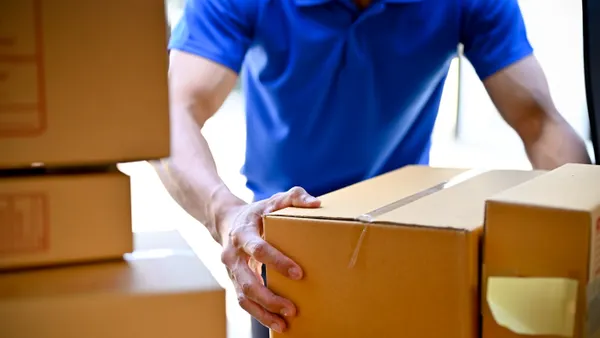Flexport has grand ambitions for its Shopify Logistics acquisition, even if it doesn't involve competing with Amazon's fulfillment empire.
The deal, announced earlier this month and expected to close in the second quarter, includes fulfillment and order storage provider Deliverr and its third-party network of U.S. warehouses, along with a handful of warehouses owned and managed by Shopify Logistics, said Parisa Sadrzadeh, Flexport senior vice president of SMB Product and Technology, in an interview with Supply Chain Dive.
Flexport has historically helped shippers move their international freight until it reached a destination port, typically in the United States. After that, the freight would be handed over to a customer's fulfillment provider for the final steps to the customer's door.
Once Shopify Logistics is integrated, Flexport will be able to provide last-mile and e-commerce fulfillment services, completing its ambitions to offer logistics solutions from a product's manufacturing origin to the end customer, Sadrzadeh said.
The intent is to create a one-stop shop for merchants to keep their inventory replenished and deliver to customers reliably. This will be able to happen for sellers on any top e-commerce marketplace — not just Shopify, but Walmart's website, eBay and Amazon as well.
"Think of us as the logistics department for all of these merchants, with our tech-enabled and integrated supply chain operating system that's now end-to-end and our global and diverse network of logistics partners," Sadrzadeh said. "This acquisition really helps us solve these problems in a much bigger way for small merchants."
A complement, not a competitor
Flexport leadership has made it clear that the acquisition doesn't make it a competitor to Amazon, even though Shopify had been building its network through the years to offer merchants fulfillment services that could match up to the industry titan. Flexport CEO Dave Clark told Fox Business that the Shopify Logistics deal instead provides merchants an extension or complement to Amazon's fulfillment network.
"Amazon is a great company and a great product for sellers, but we're also going to do fulfillment to your store, so we can replenish your physical stores, we can ship to your e-commerce site as well," said Clark, Amazon's former global consumer chief. "So we're going to do sort of a suite of things that maybe Amazon isn't doing."
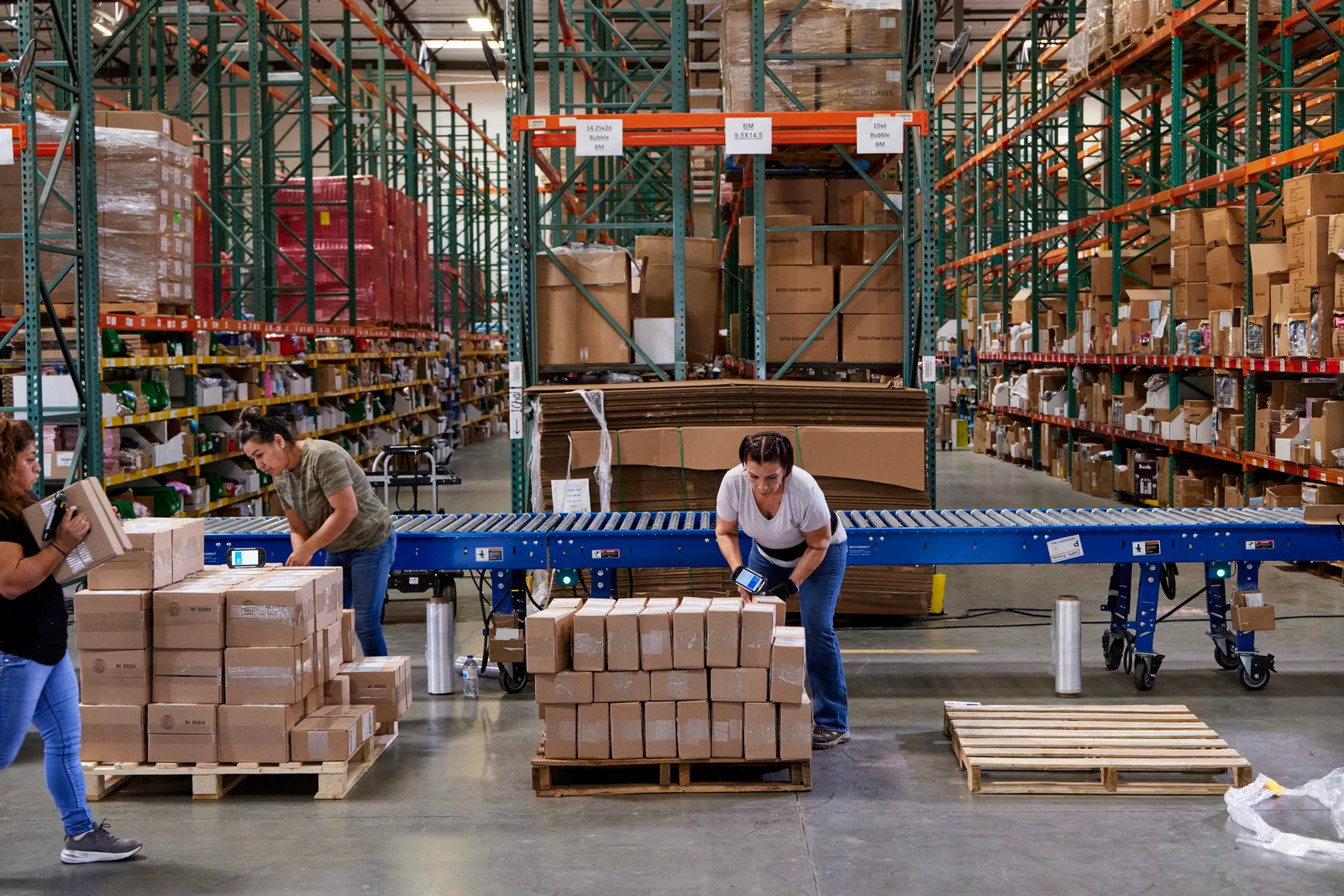
It's a different tune from what Shopify executives said earlier this year, when they touted Deliverr's asset-light network as an advantage over Amazon as the e-commerce giant struggled with excess fulfillment capacity.
Although there has been demand for a third-party equivalent to Amazon's logistics capabilities, it would be challenging to provide a complete replacement to Amazon at this stage, said Chris Cashin, co-founder of Parcel Consulting.
"You'll want to work with Amazon to make sure you've got the density or volume you need in a given market," Cashin said. "They're too big of a player to get an ego and say, 'No, we're going to compete with you. We're not interested in your business.'"
Flexport's complementary approach will be appealing to e-commerce sellers who have a portion of their revenue coming from Amazon sales but are trying to expand their direct-to-consumer business elsewhere, Cashin added.
"Amazon's not going to support that third-party side, and it's difficult to offer a comparable solution independently, if Amazon's doing the same day and next day [delivery] and you've got product placed in six of their warehouses, to meet your customer needs," Cashin said.
Deliverr's expansion to continue under Flexport
Although Flexport will help tackle the logistics challenges of merchants selling beyond Shopify, the two companies will maintain close ties after the deal's closure.
Shopify will receive stock making up a 13% equity interest in Flexport through the deal. Flexport will become Shopify's preferred provider of Shop Promise, which offers shoppers improved delivery date visibility.
"You can think of us as the primary e-commerce fulfillment and last-mile delivery provider for Shopify merchants," Sadrzadeh said.
The acquisition, particularly its Deliverr component, also opens the door for further expansion of Flexport's new offerings.
Deliverr's network planning capabilities help it predict demand and place businesses' inventory as close to end customers as possible in its asset-light network of warehouse partners. Flexport aims to continue growing Deliverr's physical infrastructure and operating systems to offer faster and more reliable delivery promises, Sadrzadeh said.
In the future, Flexport is also looking to grow Deliverr's fulfillment and delivery capabilities beyond the U.S.
"The ambition is to be global as quickly as possible," Sadrzadeh said.



